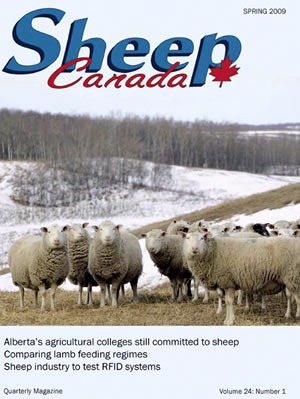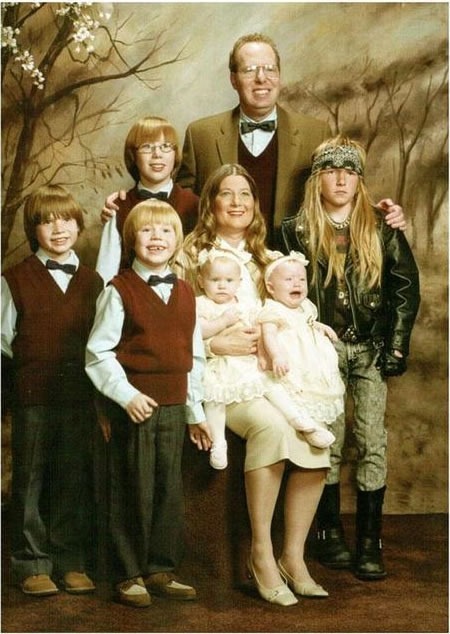Sheep Canada and Other Perspectives
Every now and again, I make it a point to pick up some reading material on a field or industry that’s completely unrelated to my own. I find that it both satisfies my curiosity and helps me see things from a completely different perspective. In one particular case, when I found a copy of Sheep Canada lying abandoned on a subway seat, I enjoyed the puzzled and concerned looks from the other passengers as I read the magazine. Not only did I get a little entertainment, but I learned a little bit about what goes into making the lamb chops and sweaters I love.
I also like asking people questions about their work, especially if it’s in field different from my own. It probably stems from the fact that everyone in my immediate family is in medicine; I’m the “black sheep” who went into computer programming. I often chat with my wife and her co-workers at the University of Toronto’s Mark S. Bonham Centre for Sexual Diversity Studies (a fascinating line of work, by the bye), my father-in-law about that branch of the insurance industry that concerns itself with executive benefits, friends who work in the television and movie industries, and so on. I love hearing their stories and find that seeing their perspectives broadens my own.
I’ve even taken on little non-developer side jobs just to get a different perspective. I’ve moved an entire warehouse of high-end dresses, had a fair bit of success as a street musician, gotten ink-stained at an old school print shop and even had a stint as an accordion-playing go-go dancer at a Toronto nightclub.
You Go Hither and I’ll Go Thither
It’s this “wanderlust of the mind” that probably led me, a guy who was actually quite happy in the “develop on the Mac, deploy on Linux” world, to becoming a Developer Evangelist with Microsoft. Each world has its own history, culture, customer base and approach to technology, and each offers lessons to the other. As I’ve said before, technology is a great big smorgasbord, where there are enough seats and dishes for everyone and every taste. Wouldn’t it be a waste if you stuck only with the dishes you knew?
I’ve spent the last year getting reacquainted with the Microsoft development world, and it’s different in many ways. There’s the obvious stuff such as operating systems, programming languages and tools. There’s also the more subtle stuff: conference demographics and what people do in the hallways at conference, the sort of apps that get written, what people do in their spare time and so on.

Don Dodge is experiencing the same thing…just in reverse. Just as I’ve gone from being a Mac guy to running Windows 7 as my primary operating system, he’s crossed over from Windows to the Mac OS and writing about his experiences with the transition in an article titled From MSFT Evangelist to Mac Enthusiast – The Other Side of the Road.
There are some lessons to be learned from Don’s observations, a fact that wasn’t lost on Todd Bishop. In his article on Don’s “switching” experience, he writes:
This sentence, in particular, caught my attention: "After years of defending Microsoft against the Apple fanatics I decided to go to the other side of the road to see for myself," Dodge writes.
Good for him, but the fact that he hadn’t seen the other side of the road as a Microsoft employee is a symptom of a larger problem at the Redmond company. Loyalty to and appreciation for your own products is nice, to a point, but after interacting with people at Microsoft for the better part of the past decade, I’ve never quite understood, logically, why it’s taboo for its employees to use competing products.
…
…think what would happen if Microsoft employees experienced and saw around them, every day, a true reflection of the competitive landscape — including Microsoft products and rival technologies. My hunch is that they’d come away with a better understanding of what motivates specific consumer actions, and how they might be able to get consumers to pick Microsoft products instead.
Todd, you took the words right out of my mouth. It’s right along the lines of my own philosophy, which I wrote about in the article Evangelist, Immigrant and Shaman:
What Microsoft needs badly is a shaman. They need somebody who is situated physically within their culture, but outside it spiritually. This isn’t a person who hates Microsoft, but it’s a person who can actually see it. I can do this for you. Give me a hut in your parking lot. I will eat mushrooms, roll around in your cafeteria, and tell you the Goddamned truth.
It’s the style in which I do my work. Yes, I devote a lot of time and effort to Microsoft’s tools and technologies, but I make sure that they’re not the only things I look at. I try to keep abreast of things like the IDE conventions in XCode, what’s happening in the worlds of the iPhone and Android, non-Microsoft languages and frameworks such as PHP, Python and Django, Ruby and Rails, templating systems like HAML and Sass and the NoSQL movement. Each has lessons (the Microsoft term is “learnings”, which I refuse to use, since I consider it a non-word) that can be incorporated into the Microsoft world, just as I’m sure that we too have lessons to offer to these other worlds. And in the end, we’ll all get better tools and technologies for our work, life and play.
It’s something you should try as well. Try using some tool or technology that you wouldn’t normally use. Hang out with developers from “the other side”. Pick up a copy of Sheep Canada. Broaden your perspective and see what you’ll learn!

